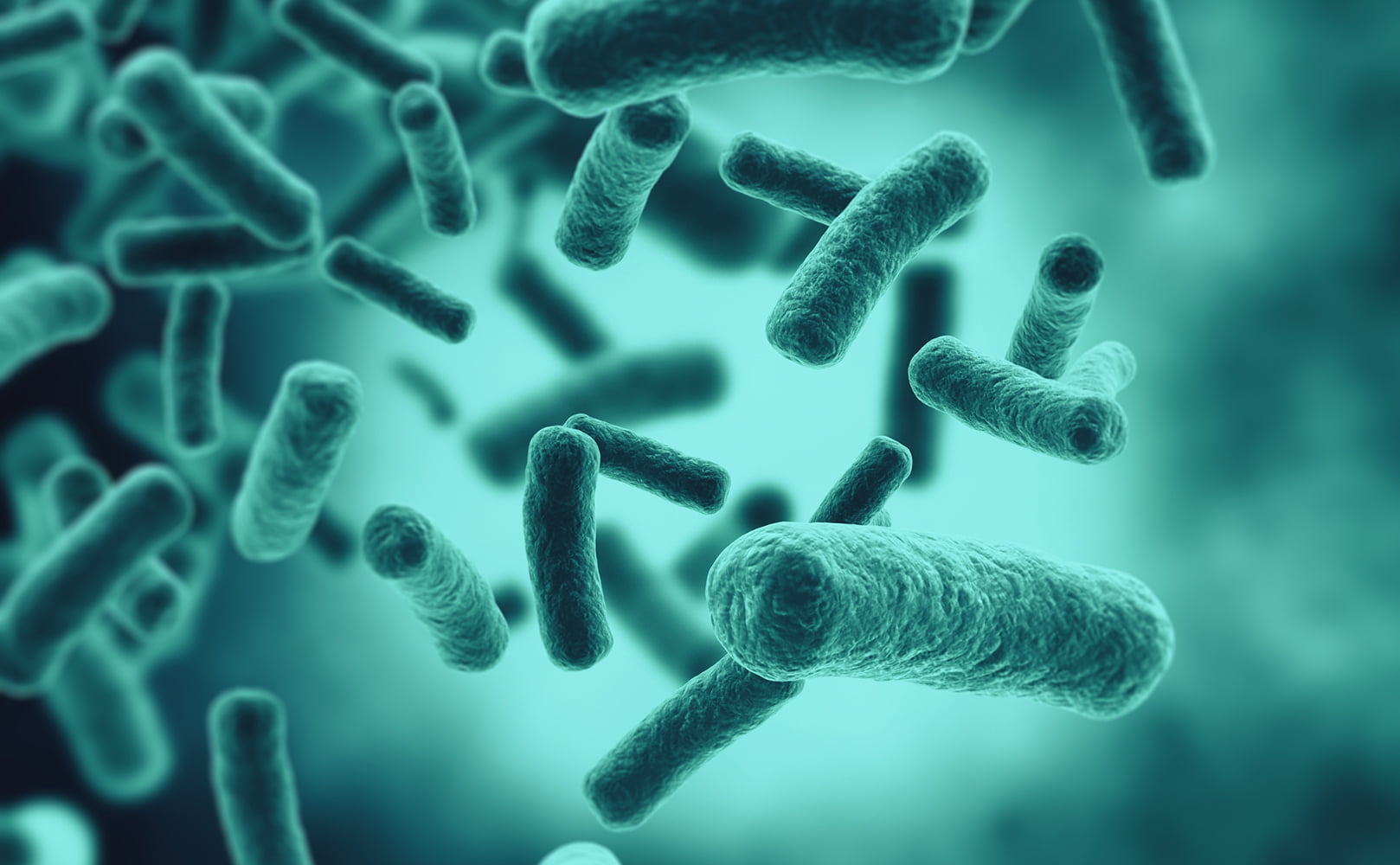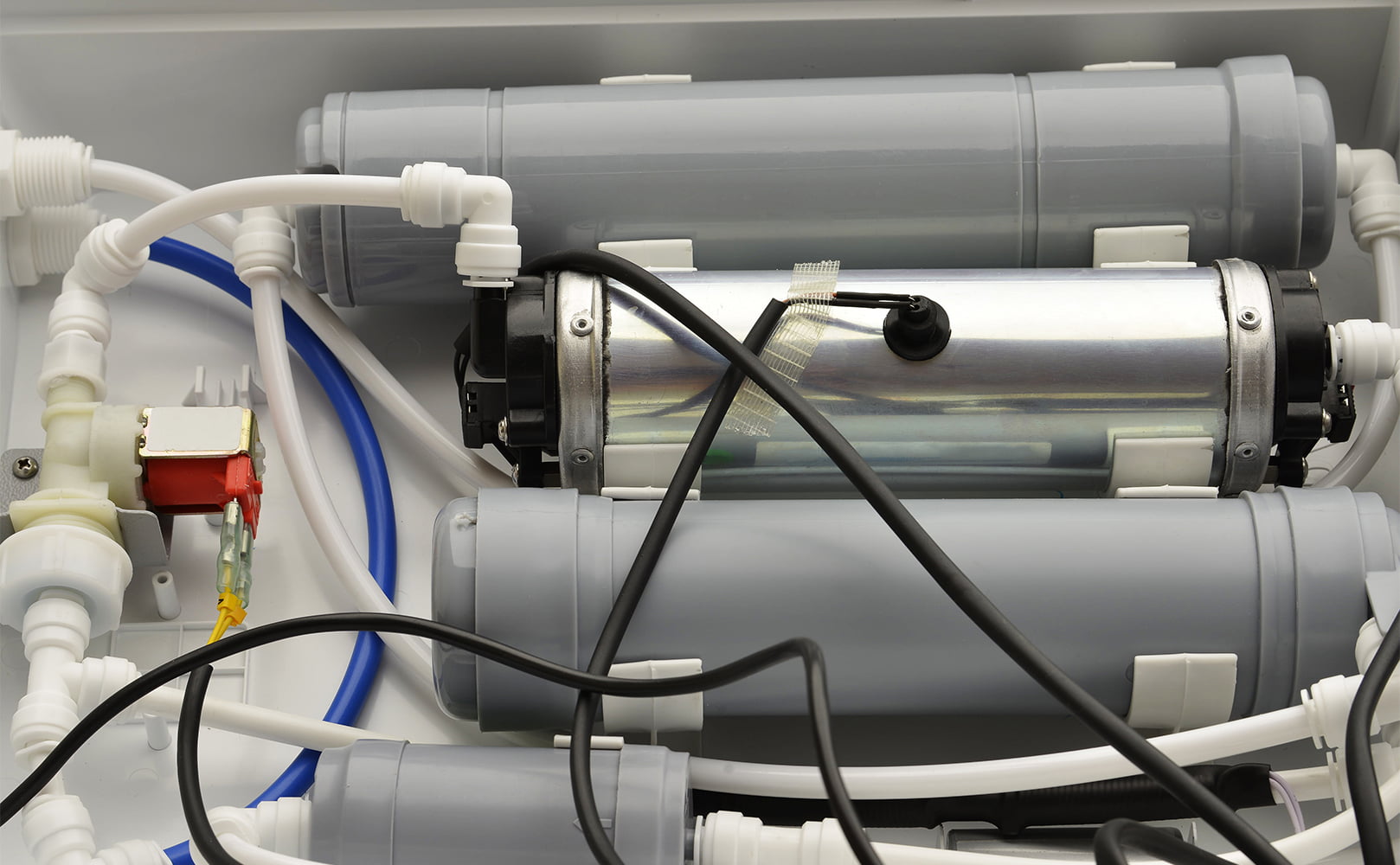Is a UV Water Purifier Good for My Health?
Written by: Gene Fitzgerald // Last Updated: Nov 22, 2022
This page may contain affiliate links. If you buy a product or service through such a link we earn a commission at no extra cost to you. Learn more.
UV light disinfection is an effective and reliable method of eliminating water-borne bacteria and viruses.
It purifies your water supply without affecting the taste, color, or smell.
But is a UV water purifier good for your health? This article has the answers.
Key Takeaways
- UV water purifiers are good for your health as long as your water meets the required conditions to allow for effective disinfection. If so, all microorganisms can be eliminated.
- The process doesn’t use any chemicals whatsoever.
- Added bonus: UV water purifiers are safe for the environment, too, since no water is wasted.
What Is UV Light and How Does It Kill Microorganisms?
UV stands for “ultraviolet”. UV light is a type of electromagnetic radiation. It can chemically alter the bonds in molecules, causing chemical reactions that cause the fluorescent glow it is famous for.
How Do UV Purifiers Work?
When water is exposed to UV light, the radiation scrambles the DNA of microorganisms in the water, which stops them from infecting or reproducing.
Can All Microorganisms Be Eliminated?
Yes, assuming the UV dosage is high enough. Some microorganisms – such as cryptosporidium and giardia – have thick, protective cell walls that require higher UV doses to penetrate.
Is a UV Water Purifier Good for My Health?
So, are UV water purifier actually good for your health?
If your aim is to eliminate harmful microorganisms from your water supply, absolutely!
No chemicals are used, and no water is wasted. In fact, UV water purifiers are amongst the most effective water disinfection tools on the market – at affordable prices for residential use, and easy to use and maintain.
They have the added bonus of being safe for the environment too.
Does UV Treated Water Have Any Side Effects?
No. UV water purifiers don’t use chemicals nor alter the composition of the water; they use radiation to disinfect and prevent reproduction from any existing microorganisms. The water looks, smells, and tastes the same, without any side effects.
Is It Always Safe to Use UV Water Purification?
So long as its standard operating procedures are followed (see below), UV water purifiers are perfectly safe.
When Are UV Water Purifiers Not Safe?
The process of UV water purification is perfectly safe. However, while UV light disinfects, it doesn’t filter out other contaminants (like heavy metals, chlorine, or pharmaceuticals), so additional treatments may need to be used in conjunction to ensure 100% water purity.
These are the other factors you need to be aware of:
Water Conditions
Any dirt in water can block (or cause shadows to) the UV light, stopping it from reaching and purifying all the microorganisms.
Other Contaminants
As mentioned, UV light kills microorganisms but doesn’t remove or filter out contaminants.
Power Outage
If there is no electric supply, the UV light will not be able to function.
Neglected Maintenance
Like any piece of equipment, UV lights require some upkeep. In particular, regular replacement of the UV lamp and quartz sleeve. Algae and other deposits also need to be wiped from the tubing within the unit at regular intervals. Luckily, the maintenance is relatively quick and doesn’t require special skills.
Recontamination
UV light disinfects water as soon as it makes contact. However, the disinfected water can recontaminate once it leaves the reactor chamber, for example when the piping downflow of the purifier is covered in a biofilm.
Advantages and Disadvantages of UV Water Purifiers
Advantages
Extremely effective – Alongside proper pre-filtration, will kill 99.99% of microorganisms
Chemical-free – Doesn’t alter the composition of the water, and no residue is left. So there is no unpleasant taste or smell, nor any of the damage to pipes, that can come from chemical purification.
Environmentally friendly – Energy efficient (using about the same as a conventional lightbulb), it doesn’t waste water or emit any harmful chemical by-products.
Compact design – Much smaller than alternative purification devices, so it won’t require any modification to the plumbing or layout of the property.
Low maintenance – Most require the UV bulb changed as little as once a year. All are simple mechanisms – easy to work, clean and maintain.
Cost-effective – The only running costs incurred are replacing the bulbs periodically (and quartz sleeve every year or two).
Safe and reliable – No chemicals are handled, and so long as maintenance protocols are followed, you can expect 24/7 protection.
Provides immediate disinfection – Unlike many purification methods, there is no time delay between disinfecting and water being ready for use.
FDA approved – UV water purification is one of only four methods with FDA approval.
Disadvantages
It doesn’t remove contaminants – UV light kills the microorganisms, but it needs additional filtration to remove any impurities and contaminants in the water (including the dead microorganisms themselves).
It doesn’t change the look of the water – As we touched on earlier, while UV water disinfection kills microorganisms, it doesn’t change the composition of the water. So if it has an unnatural or unpleasant look, smell, or taste, purification won’t improve these.
Needs electricity – Any power outage will stop the UV light bulb from working, rendering it an unsuitable solution for campers (or domestic use, if power is lost).
Performance is affected by the quality of the water that enters – Particles that are already present will not only remain there (unless filtered out), but they can block the UV rays and hinder any microorganisms hiding behind them from being killed. Any hard water introduced into the cleaner can also leave a residue that requires the quartz glass sleeve to be replaced more frequently.
No storage option – UV water purifiers don’t boast any storage options, so if users want to stockpile any disinfected water, they will need to do that separately.
If you have any thoughts about the question, is UV treated water good for my health, please don’t hesitate to leave a comment below!
Information provided on BOS is for educational purposes only. The products and services we review may not be right for your individual circumstances.
We adhere to strict editorial guidelines. Rest assured, the opinions expressed have not been provided, reviewed, or otherwise endorsed by our partners – they are unbiased, independent, and the author’s alone. Our licensed experts fact-check all content for accuracy. It is accurate as of the date posted and to the best of our knowledge.



